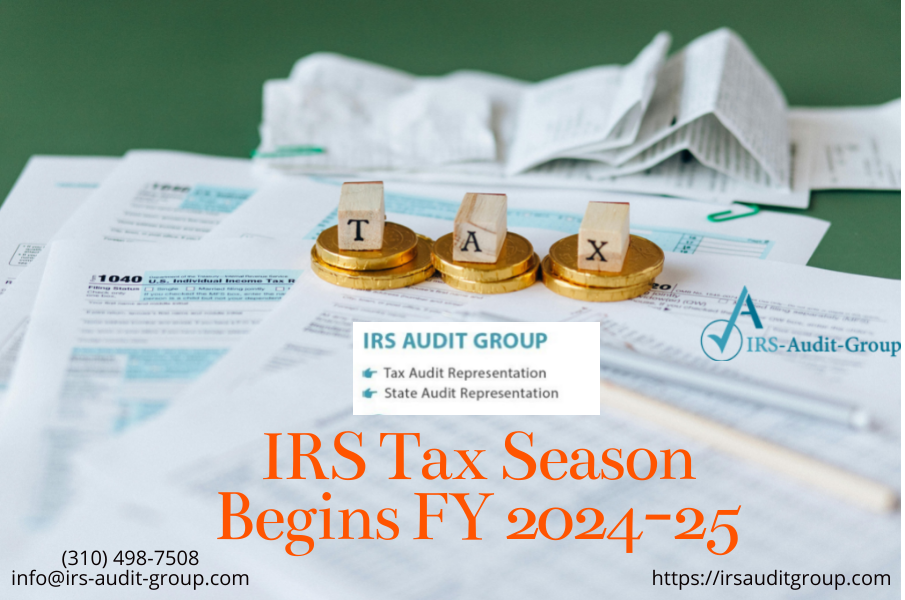The Internal Revenue Service announced the 2025 tax season to begin on January 27, 2025. Understanding tax deadlines is crucial for effective financial planning and compliance. Missing key dates can lead to significant consequences, including penalties for late filing or payment, accumulating interest on unpaid taxes, and potential legal implications such as tax audits, wage garnishments, or other enforcement actions. Here are the key tax deadlines for 2025:
Personal Tax Filing Deadlines:
- April 15, 2025: Deadline for filing individual income tax returns (Form 1040).
- October 15, 2025: Extended deadline for individuals who have filed for an extension.
Business Tax Filing Deadlines:
- March 15, 2025: Deadline for Partnerships (Form 1065) and S-Corporations (Form 1120-S).
- April 15, 2025: Deadline for C-Corporations (Form 1120).
- September 15, 2025: Extended deadline for businesses that have filed for an extension.
Other Key Deadlines:
| Date | Deadline Description |
| April 15, 2025 | Deadline for making IRA contributions for the 2024 tax year. |
| June 16, 2025 | Deadline for expatriates and Americans living abroad to file their tax returns. |
| July 31, 2025 | Deadline for certain employee benefit plan filings (Form 5500). |
Any deadline on a weekend or legal holiday is typically extended to the next business day. For example, since June 15, 2025, is a Sunday, the deadline will be June 16, 2025.
State-Specific Deadlines and Extensions
While the federal tax filing deadline is typically April 15, state tax deadlines can vary. Many states align with the federal deadline, but some set different dates due to state-specific holidays or administrative decisions. For example, in Massachusetts and Maine, Patriots’ Day can affect the tax deadline. A few portals offer a state-by-state breakdown of tax deadlines. Additionally, certain states without income taxes may have other tax deadlines to consider. It’s essential to consult your state’s tax authority to confirm specific deadlines and ensure timely compliance. Federation of Tax Administrators provides a comprehensive list of state tax forms and filing options.
Additionally, the IRS provides information on tax relief for taxpayers impacted by specific events, which may affect deadlines. The IRS provides a list of state-specific tax resources that may help understand local requirements: IRS State Tax Links.
Additional Resources and Tools
Links to IRS forms and official resources:
IRS Customer Helpline: 1-800-829-1040
Avoiding Penalties and Interest
Filing your taxes on time and paying any amounts due is critical to avoid unnecessary penalties and interest charges. Understanding the common causes of penalties and implementing simple strategies can save you from financial strain and added stress.
Common Reasons for Penalties
Tax penalties typically arise due to two primary reasons:
Late Filing vs. Late Payment:
| Category | Penalty Description | Rate | Maximum Penalty |
| Late Filing Penalty | Imposed for not submitting the tax return by the deadline (or extended deadline). | 5% of unpaid taxes per month | Up to 25% |
| Late Payment Penalty | Applied for failing to pay taxes owed by the original filing deadline. | 0.5% of unpaid taxes per month | Up to 25% |
Tips to Avoid Penalties
By taking proactive steps, you can minimize the risk of penalties:
- Pay at Least 90% of Your Estimated Liability: Paying most of your estimated taxes by the filing deadline can help avoid underpayment penalties.
- Set Reminders for Deadlines: Use digital tools or calendar alerts to stay on top of filing and payment dates.
- Use IRS Resources: Access tools like the IRS Tax Calendar or consult with tax professionals to ensure compliance.
Conclusion
Understanding and adhering to tax deadlines is vital for effective financial planning and avoiding unnecessary penalties or stress. As we’ve outlined, key dates like April 15, 2025, for individual filing and March 15, 2025, for business filing should be marked on your calendar. Extensions, while helpful, only grant more time to file—not to pay. Planning ahead, estimating your tax liabilities, and making payments by the original deadlines can significantly reduce the risk of penalties and interest.
IRS AUDIT GROUP
IRS Audit Group consists of tax professionals, CPAs, enrolled agents, and tax attorneys. We are located in Los Angeles; California and our primary area of expertise is IRS Tax Audit Representation. However, our certified professionals cooperate and work with all IRS offices nationwide. Please get in touch with us for more information.
https://irsauditgroup.com/contact/
Telephone Number: (310) 498-7508
info@irs-audit-group.com

